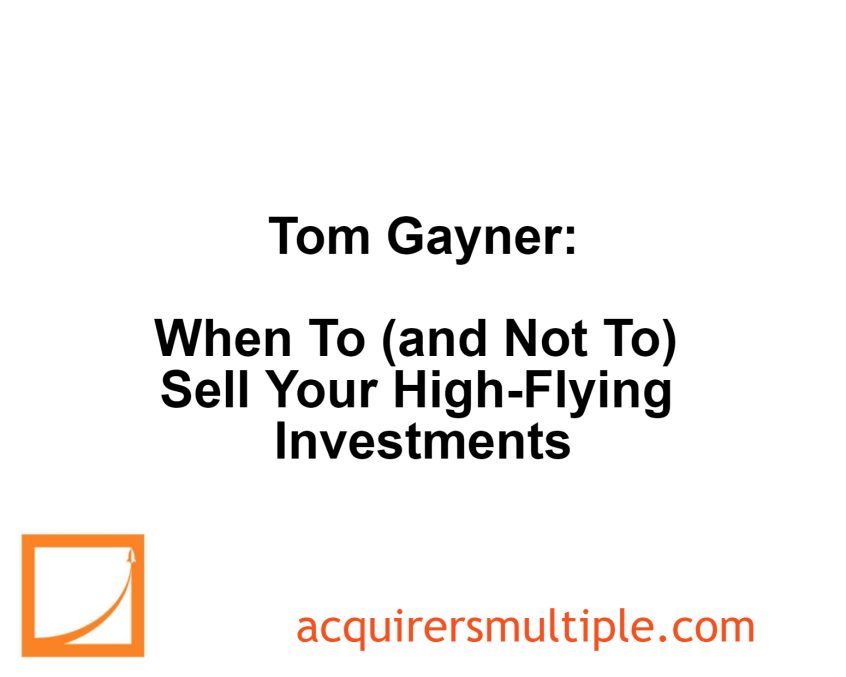In this interview with The Knowledge Project, Tom Gayner explains why you shouldn’t sell a winning investment. The two main reasons include:
1. The high opportunity cost of reinvesting:
- Selling implies realizing capital gains and paying taxes, reducing the reinvested capital
- To justify selling, the new investment’s potential return must be significantly higher to compensate for the lost capital and accrued tax liability
2. The “do more of what works” principle:
- Gayner has had long-term success with specific investments (Berkshire Hathaway and Markel)
- Consistently buying and holding winners has proven effective over time
In simpler terms: Don’t sell a good investment unless you have a much better opportunity or you stop believing in its potential. Stick with what has worked for you. Here’s an excerpt from the interview:
Gayner: Getting back to that notion of opportunity cost I think the case to sell something and buy something else should be compelling. So the tie goes to the runner. That’s there already.
Secondly, there’s tax efficiency in that for us in that assume that we have something that we bought and generally speaking it is kind of worked out.
You have a gain there which is unrealized, and unrealized means untaxed, so we have the tax liability accounted for on our balance sheet.
But in essence that creates a loan from the government for the tax portion of that unrealized gain. So if you sell something that has a big gain to it you are not reinvesting 100 cents on the dollar, you’re reinvesting 80 or 70 or 60.
And so the next idea relative to what you already have a gain in must be super compelling in order to reinvest 60 cent from hundred cent dollars of staying with the position you already have. That’s one of them.
The second algorithm at work to use one of the terms of art and language that everybody flaunts these days, the great algorithm in life is do more of what’s working.
So I bought the first share of Berkshire in 1990. I can’t remember what the last time I bought more of it was but within the last year or two.
So I’ve consistently bought that stock for years done the same with Markel personally.
Bought my first shares on the IPO in ’86. I bought more when I joined in 1990. I’ve bought consistently along the way at higher and higher prices.
But that’s doing more of what works, and in general that’s proven to be a pretty effective thing to do over time.
You can listen to the entire discussion here:
For all the latest news and podcasts, join our free newsletter here.
Don’t forget to check out our FREE Large Cap 1000 – Stock Screener, here at The Acquirer’s Multiple:



